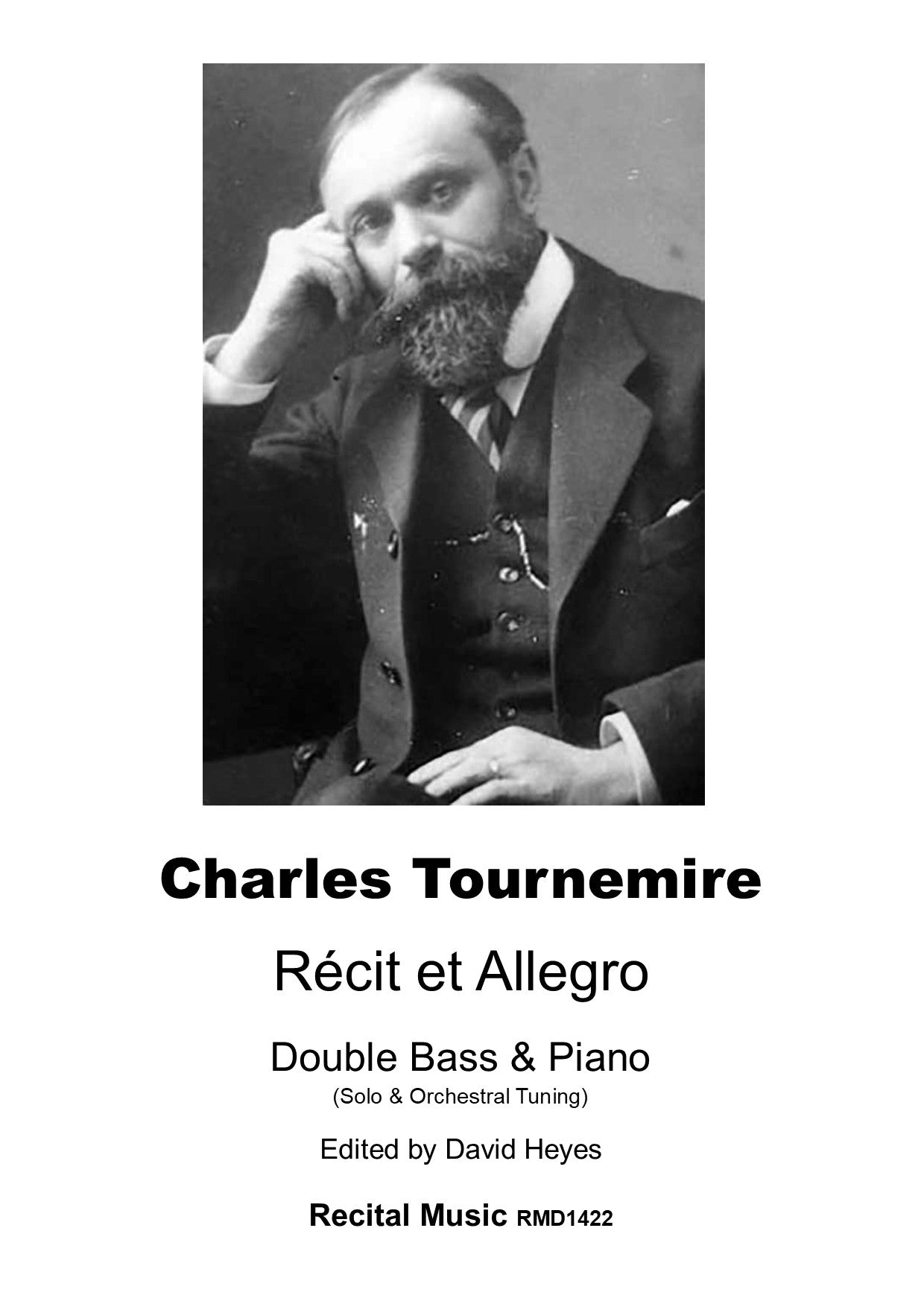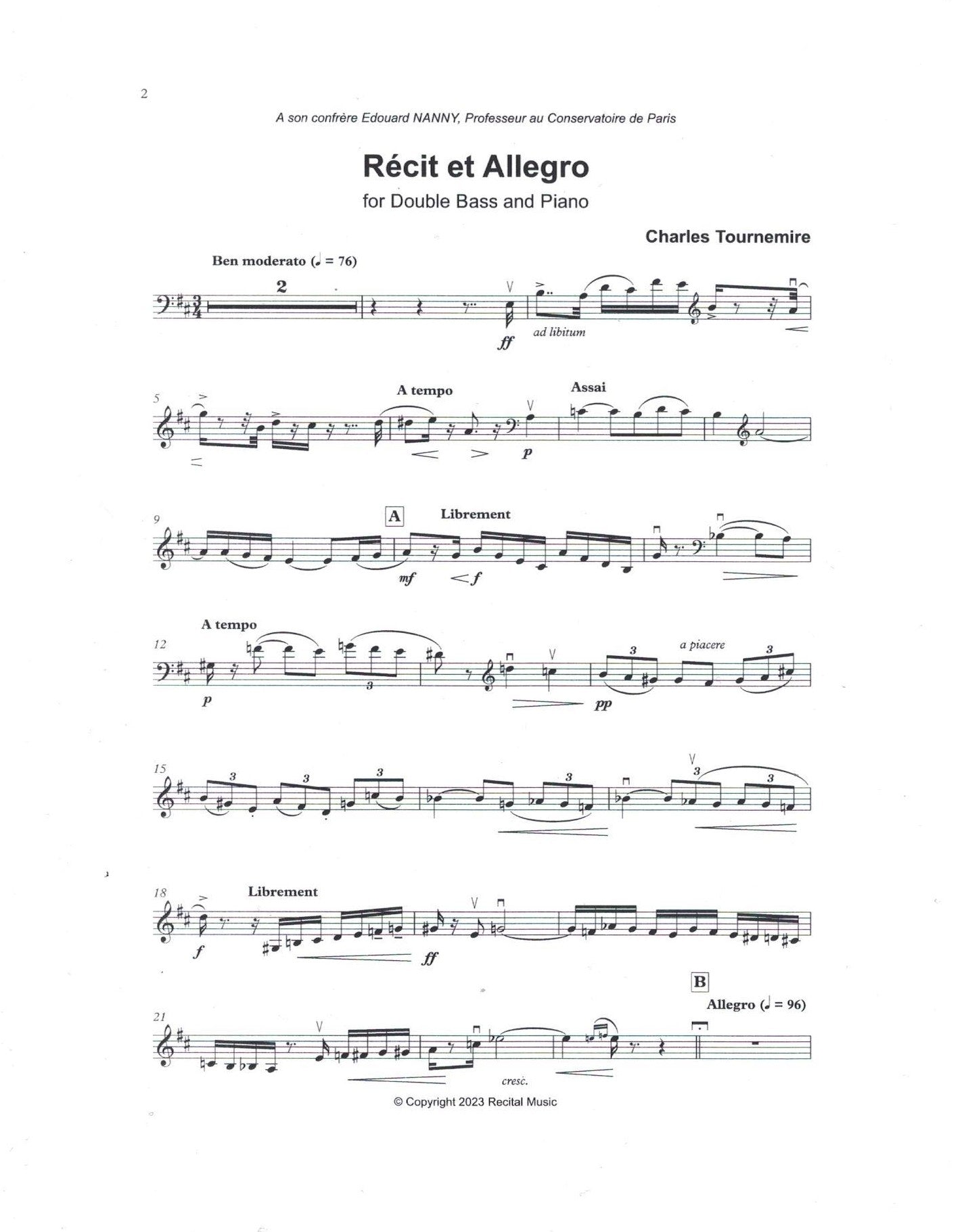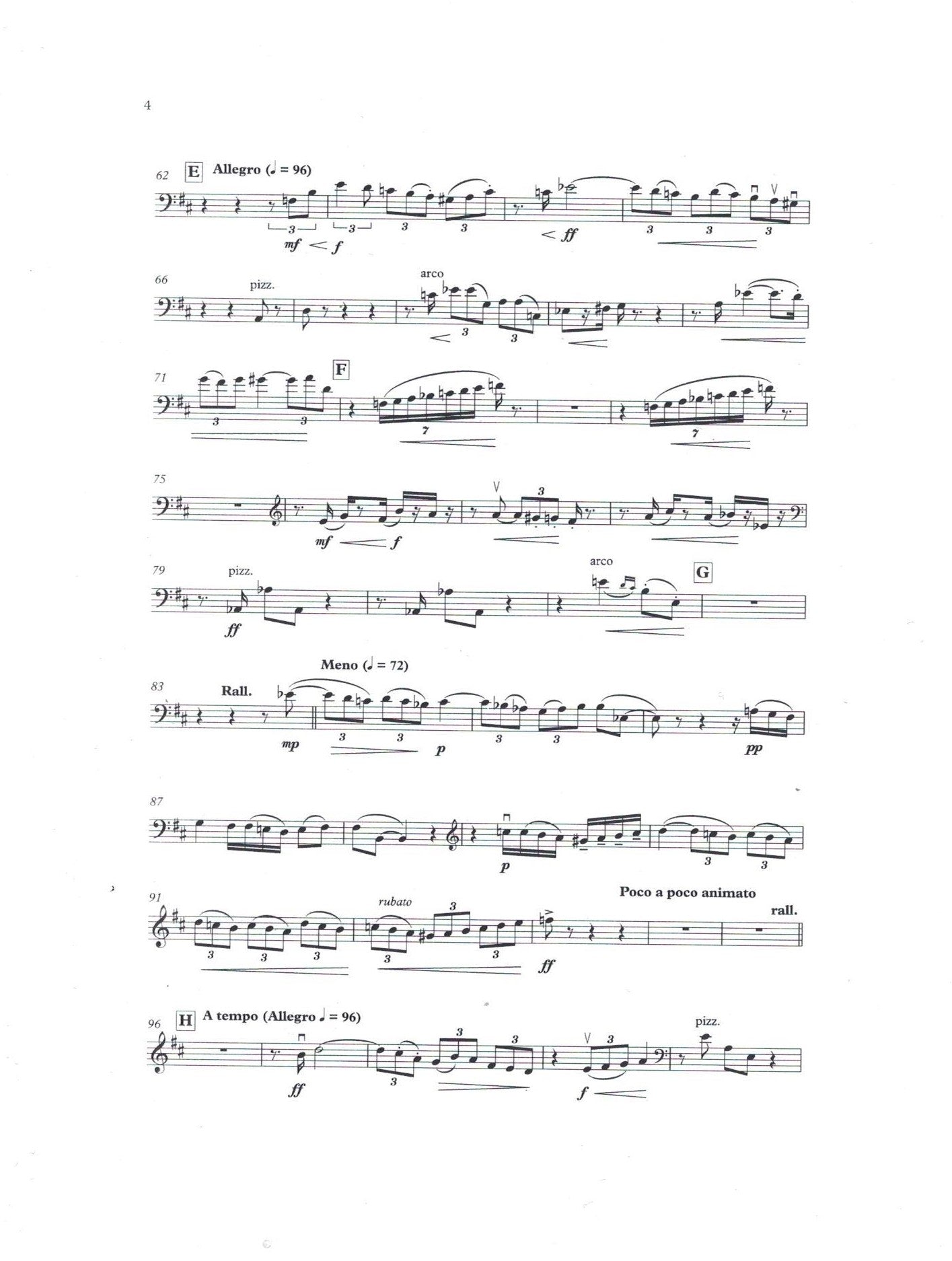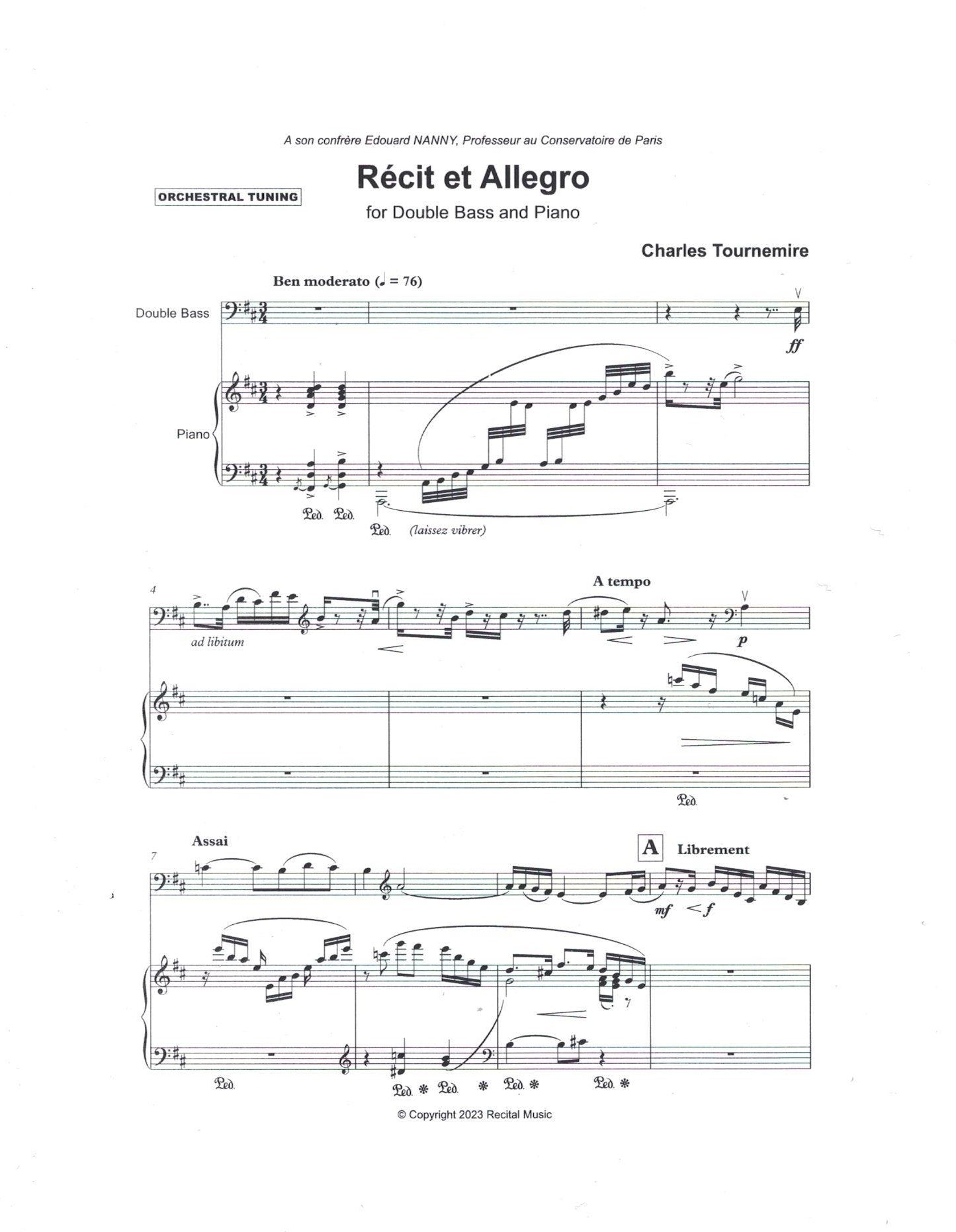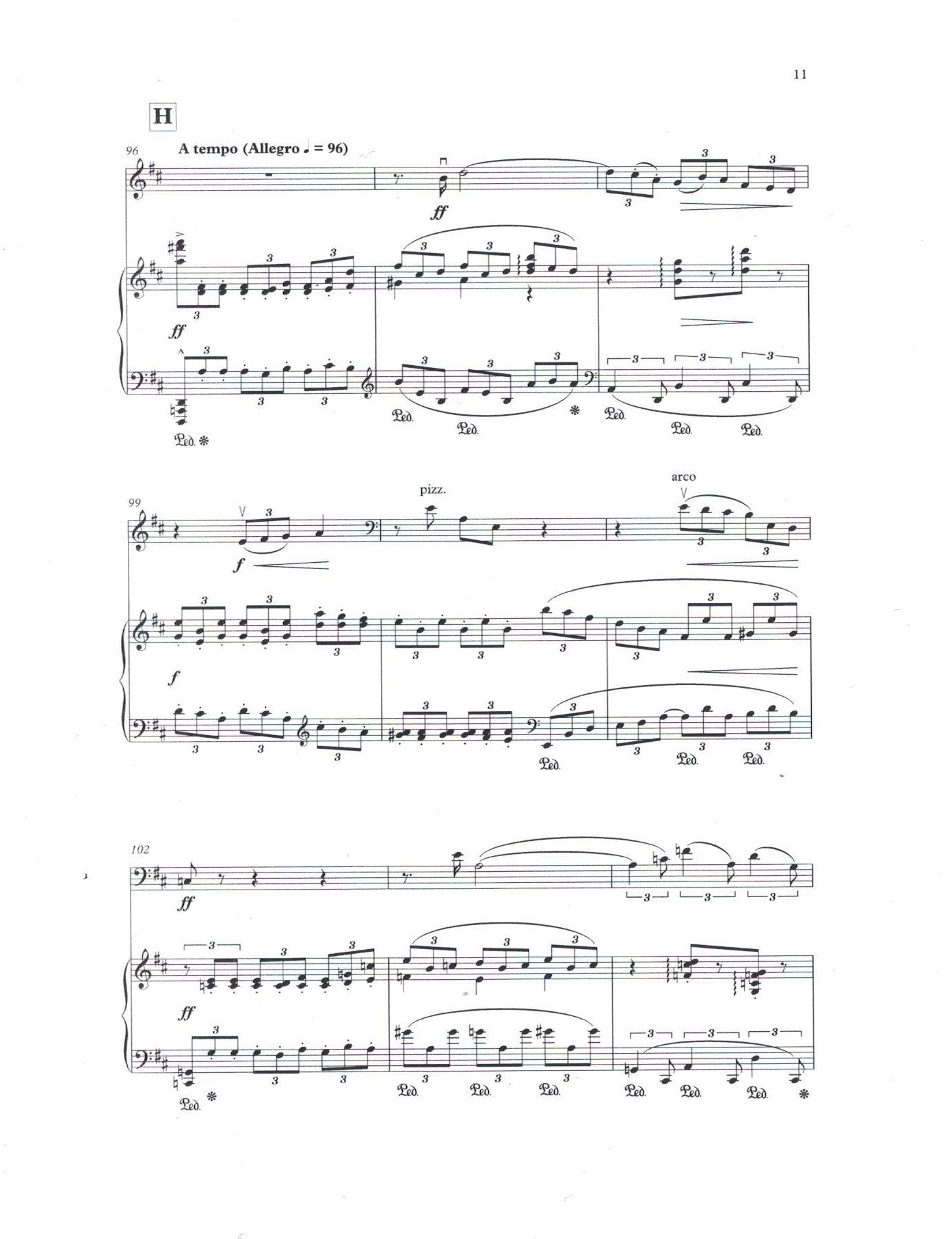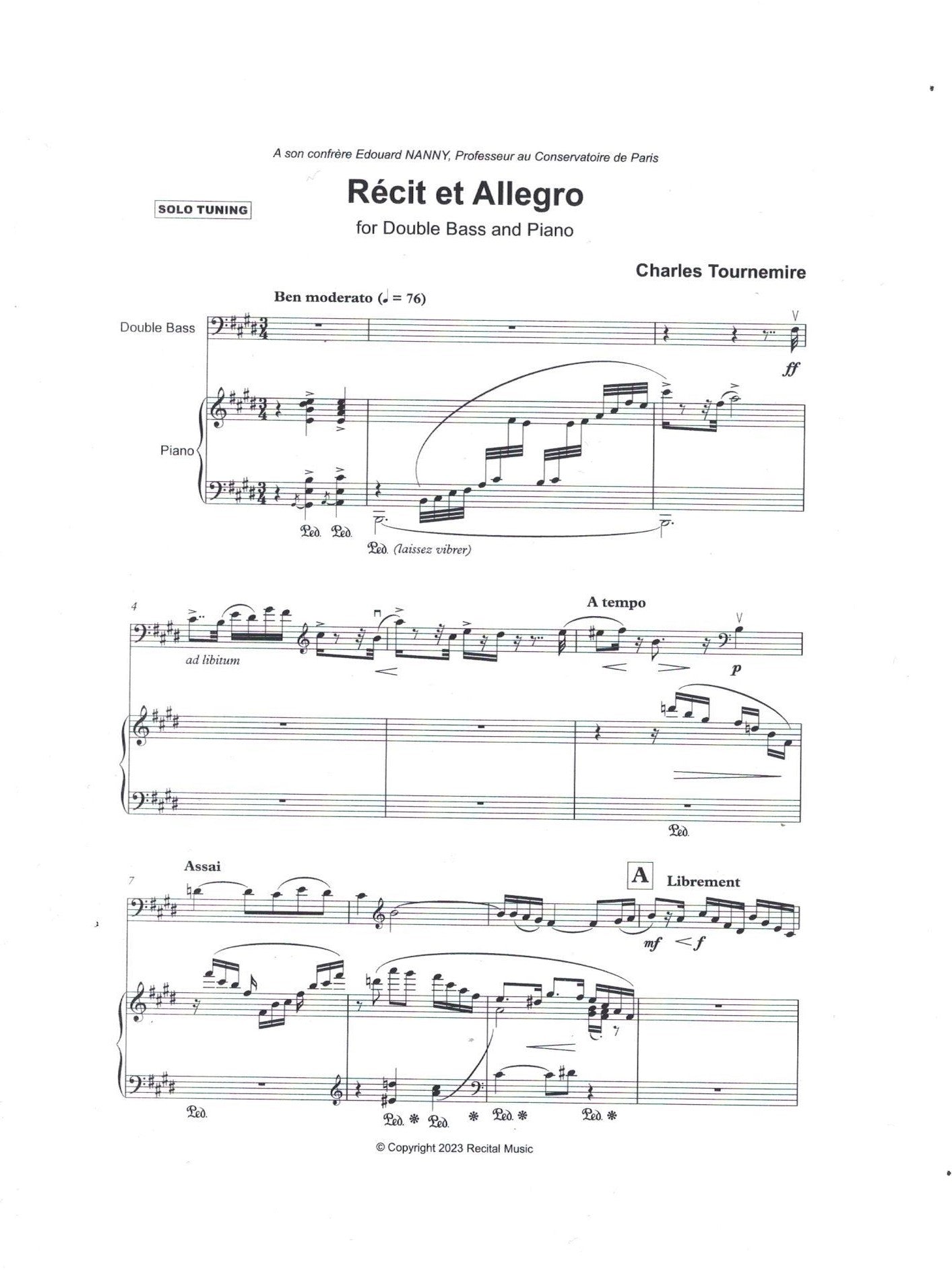David Heyes
Charles Tournemire: Récit et Allegro for double bass & piano
Charles Tournemire: Récit et Allegro for double bass & piano
Couldn't load pickup availability
About the Composition
Récit et Allegro was Charles Tournemire's only work for double bass, composed for the 'Concours du Conservatoire National de Musique' in 1935 and is dedicated to Édouard Nanny (1875-1942), the important and influential professor of double bass at the Paris Conservatoire for over 20 years.
Aimed at the advanced bassist and in one extended movement, the piece is confident and direct, combining a solo part which features musical and technical challenges alongside an accompaniment which is colourful and inventive but also provides a strong support. The entire solo register of the double bass is explored, and Tournemire produced a piece which is both serious in content and intent, completely understanding the possibilities and challenges of the solo double bass.
Arco and pizzicato are used, as well as a few double stops and harmonics, which are to be expected from a competition piece, and there is a freedom and rhapsodic nature to the piece, which would certainly test the musicianship of the soloist. Here is a work where both instruments are important and equal. Each voice has something different to contribute, with the contrasting music of the two instruments creating an impressive work which has been unjustly neglected.
The edition includes piano accompaniments for both solo and orchestral tunings.
About the Composer
Charles Tournemire was born in Bordeaux on 22 January 1870 and was appointed organist of the church of St. Pierre in Bordeaux at the age of 11. He studied at the Paris Conservatoire with César Franck and Charles-Marie Widor and later with Vincent d'Indy at the Schola Cantorum. In 1898, Tournemire succeeded Gabriel Pierné as organist in St. Clotilde, a post he held for the rest of his life.
Tournemire was appointed Professor of chamber music at the Paris Conservatoire, but the Great War had brought about cultural and musical changes, and he soon found himself out of step with the times of Les Six and Stravinsky. His masterpiece was surely 'L'orgue mystique' which includes about 15 hours of music, longer than the complete organ works of J.S. Bach, and took five years to complete. He was also known for his magnificent organ improvisations, and several were recorded and later transcribed by Maurice Duruflé. Todd McComb succinctly describes his musical style as "...always deeply serious, making use of the chorale as did Franck, and extended ideas on sonority originating with Claude Debussy.
He was among the first composers to begin looking at modes from other cultures (notably India), and his music makes effective use of this polymodality. His music is thoroughly French in idiom, though he continued Franck's efforts to incorporate harmonic ideas from the great German composers of the period." Charles Tournemire died on 3 or 4 November 1939 in mysterious circumstances. Rovi Staff writes: " ...he left his home to take a walk on October 31, 1939, and never returned; four days later, his body was found in a bog outside of Archachon, quite some distance from where he started out. The suggestion that he may have committed suicide seemed impossible for such a staunchly Catholic mystic, and the latest information suggests that Tournemire may have become disoriented, lost his way and drowned by accident."
